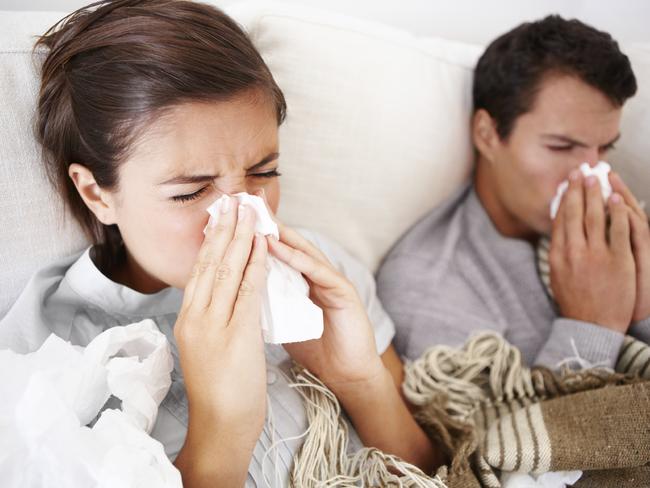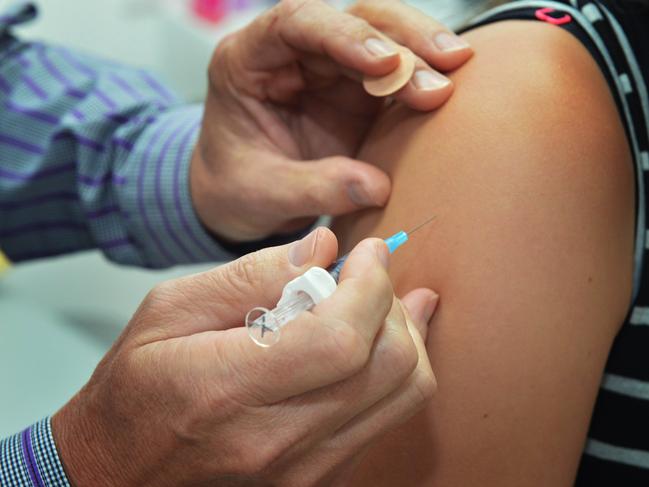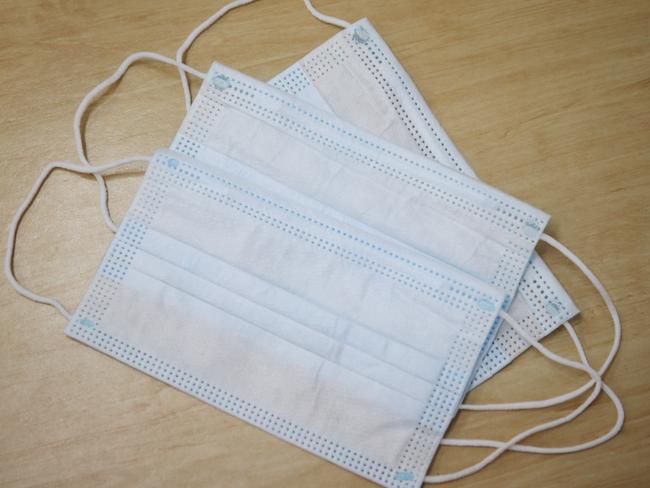Experts warn flu season could start early, before vaccines become available
Australia could be in for an early start to the flu season and it might come before vaccines become available, experts warn.

National
Don't miss out on the headlines from National. Followed categories will be added to My News.
Australia could be in for an early start to the flu season and it might come before vaccines become available, experts have warned.
The Department of Health and Ageing last week released early advice to health providers on the 2023 flu season, saying “National Immunisation Program (NIP) influenza vaccines will be available to order from April, subject to local supply arrangements”.
“Annual influenza vaccination should occur from April onwards to provide protection for the peak of the influenza season, which is generally June to September in most parts of Australia. Note though, vaccination can occur as soon as vaccine stock is available,” it said in the statement.
A spokesman for the Department of Health and Ageing said it stood by this advice.
But Professor Adrian Esterman, chair of Biostatics and Epidemiology at the University of South Australia, said this could be too late to get the vaccination campaign started and vulnerable Australians protected.
“What is likely to happen, and what the RACGP (Royal Australian College of General Practitioners) are saying is that we’re likely to have a similar scene as last year – a very very early one [start to the flu season],” he said.
“We’re looking at it starting in April and peaking around June. But the issue with that, which I can see, is that the government aren’t giving out the vaccines to GPs until late April, by which time we might already be climbing the epidemic curve.”

Professor Ian Barr, deputy director of the World Health Organization (WHO) Collaborating Centre for Reference and Research on Influenza at Melbourne’s Doherty Institute, told the RACGP’s news hub newsGP in January that cases might spike early in Australia if it followed the trend of countries in the northern hemisphere, which also had an early start.
‘We also need to take a view of what’s going on in the region. There is currently an outbreak of influenza in Fiji,’ he said.
‘It’s a numbers game and our coming season depends on the global situation.”
According to national disease reporting data, there have been almost 9000 laboratory confirmed cases of influenza recorded in Australia since January 1. The bulk of these have been in NSW (3183), Queensland (2225), and Victoria (1622).
Historic data supports Professor Esterman’s view that Australia’s flu seasons are returning to pre-Covid patterns. In the first quarter of 2019 there were 25,228 cases of confirmed influenza in Australia; in the first quarter of 2020 there were 20,057; in the first quarter of 2021 there were 161; and in the first quarter of 2022 there were 619. But in the second quarter of 2022 that number skyrocketed to 185,900.
“Last year was unusual,” he said. “We had very few but then we had this enormously fast rise. We could see that again this year.”
The Australian Influenza Vaccine Committee (AIVC) announced its recommendations for the composition of influenza vaccine for Australia in 2023 in October last year, and these were accepted by the Therapeutic Goods Administration (TGA).

And while Professor Barr told newsGP that having vaccines ready for an early season would be advantageous, he was unsure whether they would be ready in time.
“Last year, the flu vaccine wasn’t available until April and so only a small proportion of people were vaccinated as there was a rise in cases,” he said. “Hopefully this year it will be available earlier.”
The department’s advice statement to health professionals said seasonal influenza activity was expected to continue in 2023 following a resurgence of influenza in 2022, and that vaccination was the best protection against it.
The NIP provides influenza vaccines for free for people most at risk, people aged 65 years and over, children aged six months to five years, pregnant women, people who are medically at risk under certain conditions; and Aboriginal and Torres Strait Islander peoples.
Vaccines will also be available at a cost for people who don’t meet these requirements, although many companies subsidise flu vaccination for employees.
Professor Esterman said flu wasn’t the only infectious disease Australians should be worried about this winter. He estimated about a third of Australians were no longer covered by their latest Covid vaccination, and that another wave was already starting.
Latest official data as at February 28 put the average number of Covid cases in Australia at 2646 per day.

Professor Esterman said it was imperative that Australians who had not had a Covid vaccine for six months get another dose to remain protected.
“We’re starting to see signs of a new wave now,” he said. “Everyone I know, I’m telling them please, please, please make sure they’re up to date with the vaccine.
“And the new bivalent vaccines are actually very good. They’re much more effective than the original booster shots against these new sub-variants.”
Professor Esterman also appealed to Australians to consider public health measures like wearing face masks to protect themselves and others from the flu and Covid.
He was scathing in his view on how governments are handling the pandemic in Australia, which he said was not over.
“It’s amazing to me, we’re seeing the case numbers, which have dropped down in these last few weeks. But there’s many, many times that number of people who are actually infected, because the rate of testing has plummeted to almost zero,” he said.
“If we’re not testing, we’re not finding cases. They’re out there. They’re infecting people. People are getting sick, people are ending up in hospital, people are dying. And yet, the government simply doesn’t care.”




